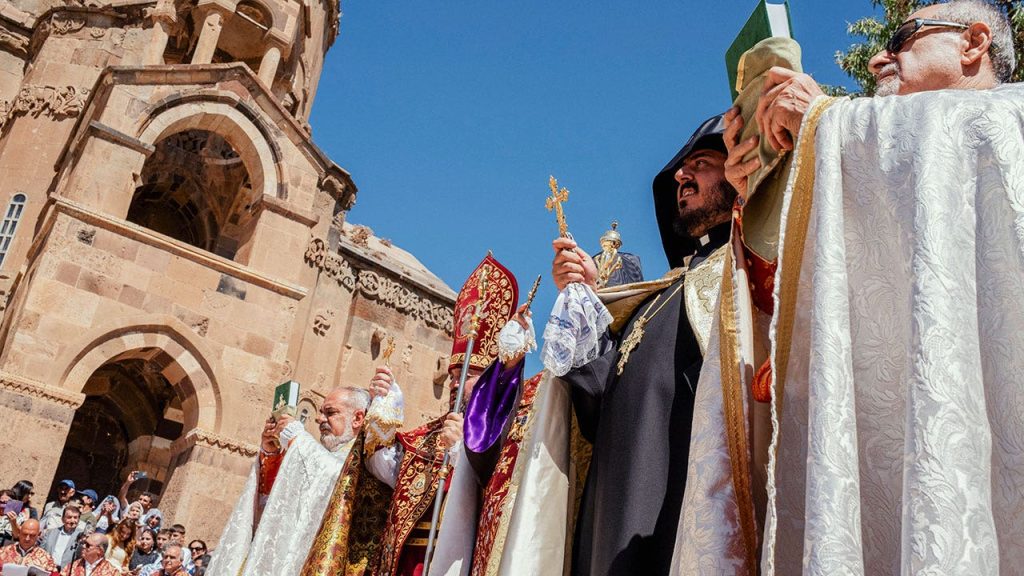Turkey’s Controversial Deportation of Christian Residents Raises Religious Freedom Concerns
In a deeply concerning trend that has caught the attention of international human rights organizations, Turkey stands accused of systematically deporting hundreds of peaceful Christians under the pretext of protecting “national security.” This troubling development was brought to light during a recent Organization for Security and Co-operation in Europe (OSCE) conference by Lidia Rieder, a legal expert with the Alliance Defending Freedom (ADF) International. According to Rieder, Turkey’s actions represent a clear misuse of law and a direct attack on religious freedom. The targeting of Christians appears to be based solely on their faith practices rather than any legitimate security concerns, raising serious questions about Turkey’s commitment to religious tolerance and pluralism—principles that the OSCE was founded to protect. The situation reveals tensions between Turkey’s historical identity as a culturally diverse nation and its current political direction under President Recep Tayyip Erdoğan’s leadership.
The scope of these deportations is substantial and growing more concerning by the month. Since 2020, over 350 foreign Christian workers and their families have been expelled from Turkey, with at least 35 new cases reported between December 2024 and January 2025 alone. The mechanism for these expulsions involves Turkey’s Ministry of Interior assigning so-called “security codes” like N-82 and G-87 to targeted individuals, effectively classifying them as national security threats without providing evidence or justification. This classification permanently bars these individuals from re-entering the country, separating families and disrupting communities that have peacefully existed in Turkey for decades. Human rights advocates argue that this practice violates fundamental principles of due process and represents a form of religious persecution that contradicts Turkey’s international commitments to protect freedom of religion or belief.
One particularly emblematic case currently before the European Court of Human Rights is that of Kenneth Wiest, an American Protestant who was born and raised in Turkey. After legally residing in the country for over three decades with his wife and three children, Wiest was suddenly banned from returning to Turkey in 2019 following a routine trip abroad. No evidence of wrongdoing was presented to justify this decision, leaving Wiest and his family devastated and separated from the only home they had known. His case, Wiest v. Turkey, is expected to set a crucial precedent for religious freedom protection throughout Europe and beyond. Legal experts view this as part of a broader pattern of discriminatory policies targeting religious minorities that has intensified since President Erdoğan took office more than a decade ago, reflecting growing concerns about Turkey’s direction on matters of religious tolerance.
When confronted with these allegations, Turkey’s response has been firm denial. The country’s Communications Center for Countering Disinformation released a statement dismissing the claims as “completely unfounded” and part of what they characterize as a “deliberate disinformation campaign.” Turkish officials point to the country’s long history of Christian, Jewish, and Muslim communities coexisting together, and emphasize ongoing efforts to protect and restore places of worship. The statement further asserted that respect for faiths and pluralism are “indispensable elements” of Turkey’s democratic order. Like any sovereign state, Turkey maintains it may make administrative decisions regarding foreign nationals for various legitimate reasons, including visa violations or disturbance of public order. Turkish authorities categorically denied making any visa-based decisions founded on religious identity or affiliation, though they notably did not address the specific circumstances of Wiest’s case or explain the security coding system identified by the ADF.
This growing tension between Turkey’s official position and the documented experiences of Christian residents highlights broader concerns about religious freedom in the region. At the OSCE conference, Rieder noted that the Turkish delegation acknowledged discrimination against Christians is increasing across the OSCE region and beyond—a statement she found “notable.” While Turkey publicly emphasizes its commitment to promoting tolerance through international cooperation, Rieder argued that these same principles must be upheld within its own borders. The reality for many individuals, families, and Christian communities in Turkey continues to include restrictions on worship, deportations, and barriers to religious education. This disconnect between Turkey’s international rhetoric and domestic actions creates a challenging environment for religious minorities and raises questions about the country’s trajectory on human rights issues.
The international community now faces important questions about how to respond to these concerns. Rieder emphasized that “freedom of religion cannot exist if believers live under threat of expulsion for practicing their faith,” and called on the OSCE and its participating states to uphold their commitments to promote tolerance and non-discrimination not just in words but through concrete actions. The ADF is urging international bodies to hold Turkey accountable for these reported violations of religious freedom. As Wiest’s case progresses through the European Court of Human Rights, many observers see it as a litmus test for whether international legal mechanisms can effectively protect religious minorities in countries where domestic policies appear to be moving in a more restrictive direction. For the hundreds of Christian families affected by Turkey’s deportation policies, the outcome of these international deliberations could determine whether they can ever return to the communities and homes they’ve built over generations.













